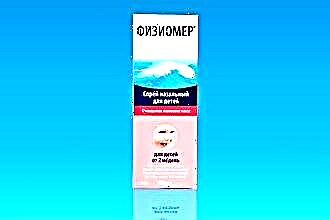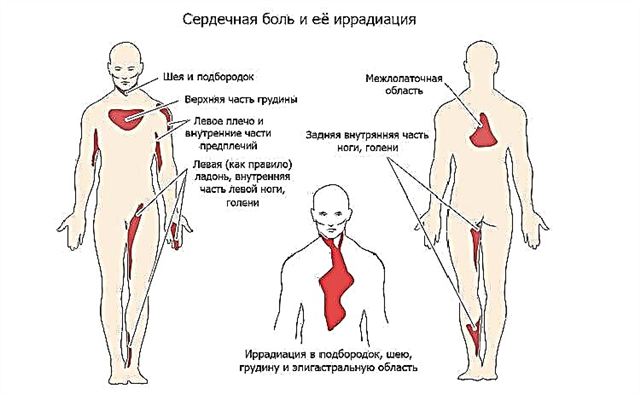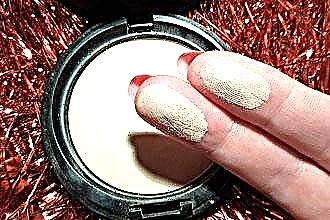Boogers in the nose are dried muconasal secretions (nasal mucus), which may contain dust particles, dead epithelial cells, etc. Dry crusts that form in the nasal passages often cause irritation of the mucous membrane and the desire to remove them from there. To refer to painful picking in the nasal passages in medicine, the term rhinotyllexomania is used.
 Why do boogers appear in the nose? The inner surface of the nasopharynx is covered with the so-called ciliated epithelium. The mucous membrane is moistened with a viscous secretion, which is produced by unicellular glands - goblet exocrinocytes. Dry crusts in the nasal passages are formed due to a decrease in the secretory function of the external secretion glands. The article will consider the most common exogenous and endogenous factors affecting the process of nasal boggle formation.
Why do boogers appear in the nose? The inner surface of the nasopharynx is covered with the so-called ciliated epithelium. The mucous membrane is moistened with a viscous secretion, which is produced by unicellular glands - goblet exocrinocytes. Dry crusts in the nasal passages are formed due to a decrease in the secretory function of the external secretion glands. The article will consider the most common exogenous and endogenous factors affecting the process of nasal boggle formation.
Boogers - what is it?
Booger (goat) - dried nasal secretion, which includes proteins (mucin), epithelial cells, salt, nucleic acids and protective cells. Mucin gives viscosity to the muconasal secretion, so an increase in its concentration can cause mucus to dry out. As a rule, boogers appear due to hypofunction of goblet exocrinocytes or an increase in the amount of mucin in the nasal fluid.
By itself, nasal discharge performs several important functions in the body:
- moisturize the inner surface of the nasopharyngeal mucosa;
- prevent the reproduction of opportunistic microorganisms in the respiratory tract;
- purify the air from dust particles, dirt, molecules of volatile gases, etc.
The constant formation of dry crusts in the nasopharynx is a sign of a decrease in the secretory function of goblet exocrinocytes.
Where do boogers come from in the nasal cavity? The nasal mucosa plays the role of a filter that cleans the air from pathogens and dust. If the atmosphere contains too many foreign agents, over time this will lead to an increase in the viscosity of the nasal secretion. This is what becomes the main reason for the formation of dry crusts in the nasal passages.
Exogenous and endogenous causes

Conditionally, the reasons for the thickening of the nasal secretion can be divided into external and internal. In most cases, crusts in the nose appear due to the adverse effects of exogenous factors. Detection and elimination of the key causes of the violation of the secretory function of the glands in the nasopharynx prevents the formation of dry crusts on the inner surface of the nasal passages.
Dusty air
Most often, the problem associated with the formation of crusts in the nasal cavity appears in people working in hazardous industries. Particles of lumber and molecules of paints and varnishes play the role of thickeners that affect the consistency of the nasal secretion. Constant work without a respirator will sooner or later cause the mucus in the nasopharynx to dry out and, as a result, to form dry crusts.
It should be understood that nasal discharge has pronounced antiseptic properties, therefore, their thickening leads to a decrease in local immunity in the respiratory tract. As a result, this can provoke the multiplication of opportunistic fungi and bacteria in the nasopharynx, which will cause the development of rhinorrhea, nasopharyngitis, bacterial rhinitis, etc.
Insufficient air humidity
Most often, bugs in the nose occur in winter when heating is turned on in houses and apartments. In this regard, the humidity in the room drops to 40-45%, which negatively affects the function of the submucosal layer in the nasopharynx. Dehydration of the ciliated epithelium leads to a decrease in the secretory function of the goblet cells, as a result of which white crusts begin to appear in the nose.
Drying of muconasal secretions in the airways is indicated by frequent sneezing and discomfort caused by a tingling sensation in the nasal passages. To moisturize the mucous membrane and restore the secretory function of the glands, it is necessary to increase the level of humidity. For this, special humidifiers and wet towels hung in the room can be used.
To reduce the viscosity of mucus in the nasal passages, it is necessary to maintain a sufficient level of humidity in the room - at least 65-70%.
Trauma
Quite a few boogers in the nose appear due to chemical and thermal burns of the mucous membranes. High temperatures and volatile chemicals cause inflammation of the ciliated epithelium, resulting in dysfunction of exocrinocytes. Burns in the nasopharynx can be provoked by:
 steam inhalation with hot liquid;
steam inhalation with hot liquid;- inhalation of vapors from household chemicals;
- rinsing the nose with concentrated hypertonic solutions;
- contact with alkali, alcohol or acid on the nasal mucosa.
In the case of mild soft tissue damage, it is recommended to rinse the nose with isotonic drugs - "Morenazal", "Physiomer", "Dolphin". They will not only speed up healing, but also prevent the development of infection in the affected mucosa.
Endogenous causes
If discomfort appears in the nose caused by the formation of dry crusts, this may indicate the presence of malfunctions in the respiratory, endocrine and digestive systems. The most likely reasons for the decrease in the functions of exocrinocytes include:
- Degeneration of the nasal mucosa. Degenerative processes in the ciliated epithelium most often occur due to the irrational use of vasoconstrictors and hormonal drugs. They include substances that negatively affect the function of the glands of external secretion;
- Goblet cell metaplasia. Metaplasia is the persistent replacement of one cell type with another. The degeneration of unicellular glands in the nasopharynx can be caused by endocrine disorders or infectious processes;
- Dehydration of the body. On the Elslots online casino website www.elslots.online you can find the best mobile slot machines for hryvnia on the Internet. Only for Ukrainian users, Elslots casino gives a no deposit bonus for registering 77 free spins. A decrease in the amount of fluid in the body inevitably leads to thickening of the muconasal secretion. Excessive diuresis, hyperhidrosis (increased sweating), acute diarrhea, etc. can provoke dehydration.
Permanent crusts in the nose are a sign of the development of pathological processes in the submucous layer of the ciliated epithelium. Only a doctor can identify the cause of thickening of the muconasal secretion after a differential diagnosis.

 steam inhalation with hot liquid;
steam inhalation with hot liquid;

